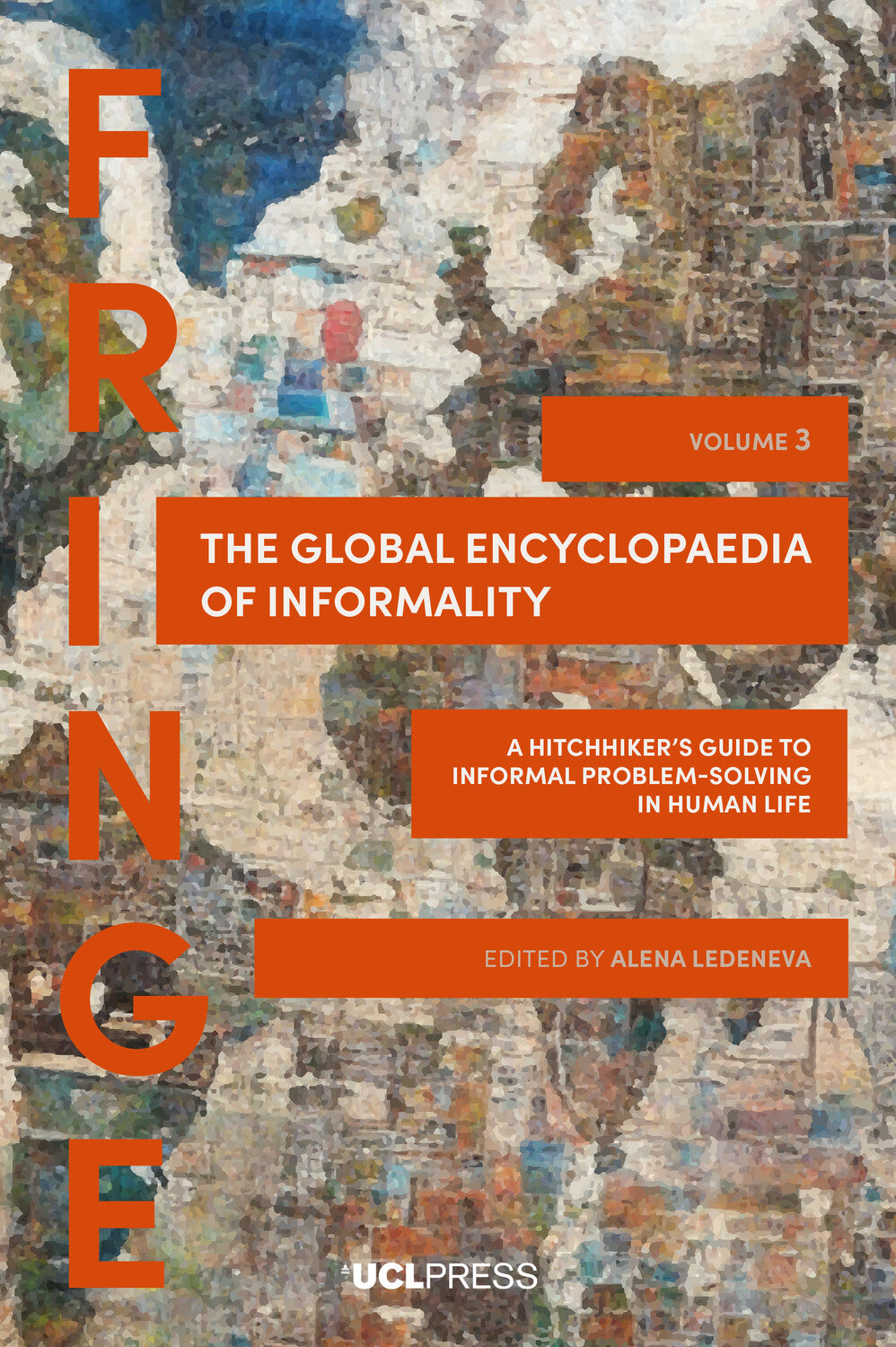The Global Encyclopaedia of Informality, Volume 3: A Hitchhiker’s Guide to Informal Problem-Solving in Human Life, edited by Alena Ledeneva
"This book tells a story of human cooperation. It is not the narrative you’ll find in books teaching you how to solve problems. It is an assemblage of something much more endemic, fundamentally human, and much more pervasive than we tend to think of informality. It involves money and power, but also the alternative currencies of gaining advantage or gaming the system" - Bruce Schneier, author of A Hacker's Mind
"Alena Ledeneva’s latest database of rule bending is a goldmine for documentary makers and storytellers. Entries from 70 countries, covering a human lifespan from Chinese 'anchor babies' to funeral feasts in Azerbaijan, offer remarkable insights into the way the world really works" - Lucy Ash, journalist
For a post-human hitchhiker, human life – with its anxiety, ageing, illness and constant need for problem-solving – may look unviable. Yet, for humans, the life struggle is softened by human touch, human emotion and human cooperation.
The Global Encyclopaedia of Informality, Volume 3 continues the journey of the two previous volumes into the world’s open secrets, unwritten rules and hidden practices. It focuses on issues of emotional ambivalence and pressures of the digital age. The informal practices presented in this volume demonstrate the urgency of alleviating tensions between continuity and all-too-rapid change and the need to tackle the central problem of modern societies – uncertainty.
The volume takes a reader on a ‘biographical’ journey through elusive, taken-for-granted or banal ways of getting things done from over 70 countries and world regions. It offers innovative understanding of the significance of fringes, and challenges the assumption that informality is associated exclusively with poverty, underdevelopment, the Global South, oppressive regimes or the former socialist countries of Eastern Europe and Central Asia. It also maps the patterns of informality around the globe; identifies specific informal practices in a context-sensitive way; and documents their ambivalent impact on people engaged in problem-solving, on societies in which these problems arise, and on humanity overall.
Paperback
Couldn't load pickup availability
Share

You Also Viewed

The Global Encyclopaedia of Informali...
